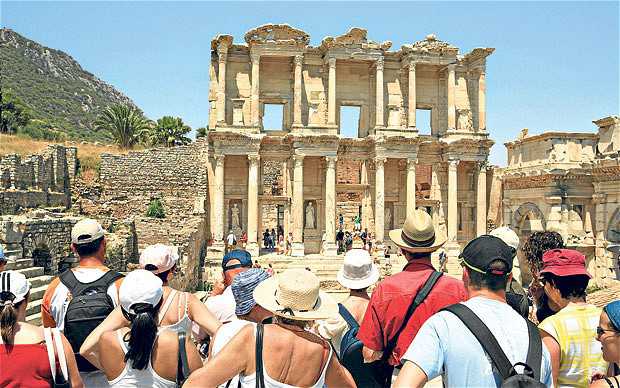March 21, 2009
As officials, activists, and entrepreneurs from 130 nations meet this week in Istanbul to seek better ways to manage the world’s water problems, there is one solution under discussion that might seem obvious: exporting water from wet countries to dry ones.
Many parts of the northern hemisphere — such as the sponge-like summer tundra of Siberia and Canada — are soaked in water. But a few thousand kilometers south, the much more arid regions of Central Asia, North Africa, and the American southwest suffer regular water shortages and frequent droughts.
One recurring proposal is to build a 2,000 kilometer canal to send water from the Ob River in Siberia to the Aral Sea basin in Kazakhstan and Uzbekistan. The idea was first proposed in the 1960s and resurfaced as recently as 2002 in regional discussions.
Uzbekistan is particularly interested in such a possibility. The country, which is fed by rivers originating in Tajikistan and Kyrgyzstan, is in constant dispute with its upstream neighbors because it wants more water. Its population is growing and its biggest cash crop, cotton, requires four to five tons of water for each ton of produce.
Parts of Europe suffer similar shortages. The European Commission is looking into the feasibility of sending water from the snow-capped Austrian Alps through pipelines to Spain and Greece.
And, separately, the same company that built the Suez Canal in the mid-1800s has proposed building a canal to take water from France’s Rhone River to Barcelona.
Anders Berntell, executive director of the Stockholm International Water Institute, says all these ideas have merit. But they also have something else in common: huge price tags.
“Transferring water from a wet region to a dry region in general is at least one of the solutions that needs to be considered, but it is a very expensive solution,” he said. “There are very high costs to building pipelines or constructing canals or whatever technical solution is chosen.”
Additionally, he says, transnational projects require a lot of political will, not only to find the funding but also overcome what are usually strong local objections in the water-supplying country. People tend to feel possessive of their water resources, and they often fear that tinkering with them may create environmental problems for the future.
“What will be the downstream effect for ecosystems farther down the river?” Berntell asks. “We know that in many rivers there is already a rather big over-abstraction of water, resulting in very low water flows and in stress to ecosystems and stresses to downstream societies that, maybe, are deprived of possibilities to use the water resources. So, it is very site-specific and context-specific, and this is definitely something that has to be considered.”
Regional Deals
Still, some smaller-scale, water-transfer efforts are going ahead.
Turkey has built a $150 million water export hub at the mouth of its Manavgat River, which flows into the Mediterranean near Antalya. Converted oil tankers fill up with either refined or unrefined water from the river and deliver it to regional buyers.
Israel signed a 20-year deal in 2002 to buy 50 million cubic meters of water a year by ship from Turkey for a price of up to $1 billion. Israel would prefer a pipeline that could deliver water steadily, but the pipeline would have to pass through its arch-enemy, Syria.
Given the many political and economic problems with transferring water, some experts recommend that countries explore less expensive ways to share their “blue gold.” One is a formula known as benefit sharing.
Berntell explains: “If you have a situation where an upstream country has a lot of water and the downstream country has very good possibilities for food production, then maybe the upstream country can let more of its water go to the downstream country for the benefit of food production there and then, in a trade agreement with the downstream country, buy these food products at a subsidized price.”
Benefit sharing is already being tried by some neighboring countries that joined by rivers. Among the most successful examples, Berntell says, are South Africa and landlocked Lesotho.
“Between South Africa and Lesotho there is an agreement where Lesotho has the dam, water is transferred to the Johannesburg area for use in the city and in the mining industry there, and South Africa pays quite a big sum to the state budget of Lesotho for receiving this water,” Berntell said.
Could such a formula work for upstream countries like Kyrgyzstan and Tajikistan and downstream countries like Kazakhstan and Uzbekistan?
As with proposals to transfer water from Siberia to Central Asia, the key factor is political will.
The difficulties of getting countries to share water resources should never be underestimated. But cooperating over existing rivers is certainly less expensive than creating rivers that never existed before.
Source: www.rferl.org, March 21, 2009




